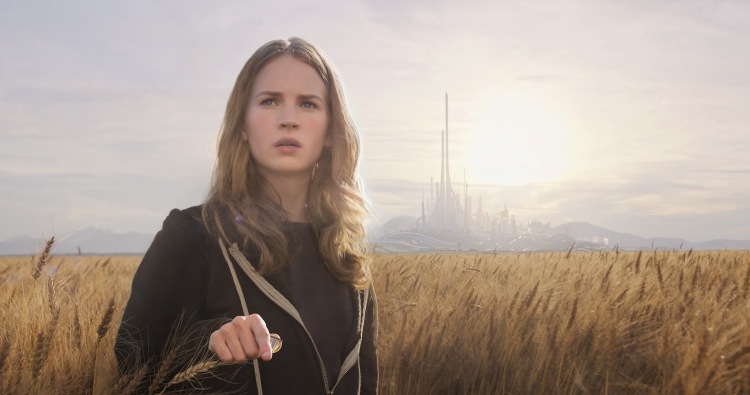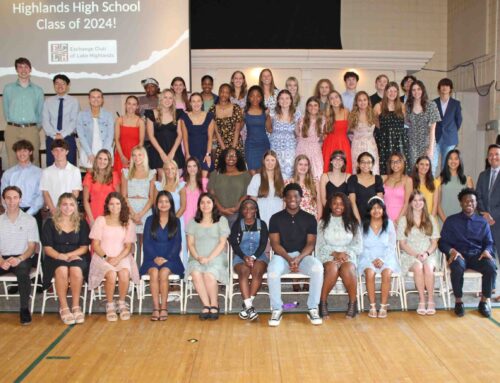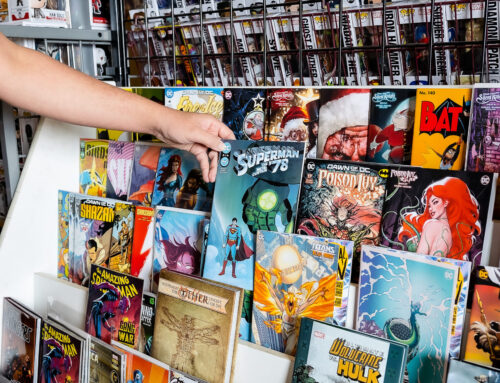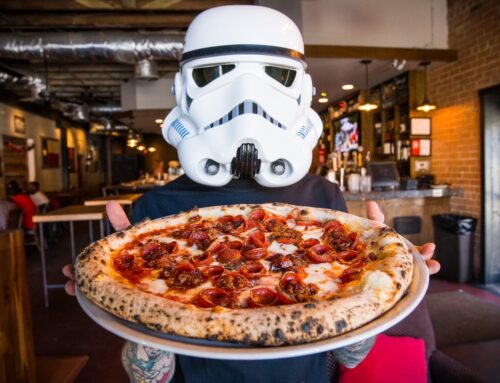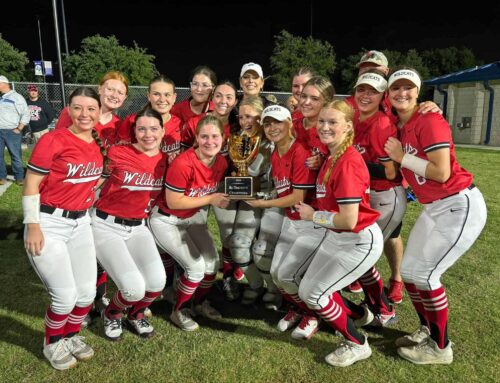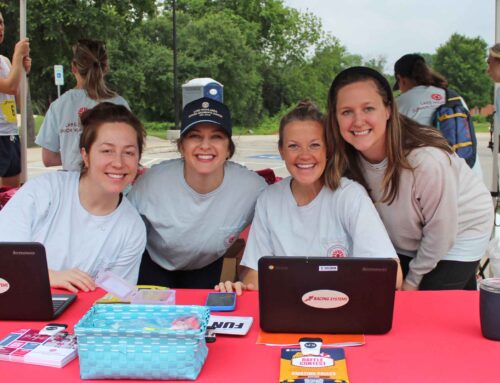It’s slickly packaged, but below its surface Brad Bird’s Tomorrowland is a preachy, chaotic jumble of themes and style at odds with itself from the get-go. Its message of fighting for the future while we still have one is certainly admirable, but its ideas on how to are so vague they seem to boil down to having a Coke and teaching the world to sing.
It also exhibits a dash of hypocrisy, excoriating mankind’s rampant consumption and its effects on the environment on one hand, while jamming itself full of Disney product placement with the other.
The story (co-written by Bird, Lost co-creatorDamon Linderlof, and Jeff Jensen) is very much House of Mouse-style pseudo-nostalgia: After a tedious, confusing, and unnecessary opening sequence, we’re introduced to Francis Walker (Thomas Robinson), a young lad who crashes the 1964 new York World’s Fair — literally and figuratively — with his homemade jetpack. He’s dismissed by haughty science-guy David Nix (Hugh Laurie), whose daughter Athena (Raffey Cassidy) takes an immediate liking to him and smuggles him into Tomorrowland, a futuristic city of super-science.
Flash forward to the present day, where bright twentysomething Casey Newton (Britt Robertson) mysteriously receives a pin that gives her visions of Tomorrowland. Soon after, an apparently ageless Athena guides her to an older, embittered Frank Walker (George Clooney), long-since banished from the city of tomorrow. Athena warns them both of impending danger, and sends them off to save the world.
It’s a workable premise, but the characters are weakly scripted and the plot is over-complicated and buried under tons of gee-whiz gimmicry, up to and including robots, ray guns, rockets, men in black, and a future-retro city artfully positioned in a wheat field and designed to evoke visions of Oz as envisioned by Terrence Malick. The movie’s true intent, less of a call to save ourselves and more of an attack on the cynicism and apathy that seems to prevent us from doing so, doesn’t come until the final act, in the form of a wonderfully acerbic monologue that provides one of those enjoyably uncomfortable moments when you realize the villain makes a disturbing amount sense.
Unfortunately it takes too long to the point, diverging ever few minutes for a clunky set-piece, the most egregious of which is a side-trip to a memorabilia store run by Keegan Michael Key and Kathryn Hahn, in which every shot is crammed floor-to-ceiling with Star Wars– and Marvel-related knickknacks. It’s such an obnoxious bit of self-promotion that the movie’s biggest thrill comes when the joint is blown to smithereens. (Which raises another curious point: the surprising number of explosions, amputations, decapitations, violent impacts, and disintegrations — mostly involving human-looking robots — in a Disney flick with a family friendly PG rating.)
The shortcomings are disappointing, given Bird’s track record as a writer-director — hell, he made the Mission: Impossible franchise seem cool for the first time ever. When Clooney’s jaded genius opines mid-movie: “Do I have to explain everything? Can’t you just be amazed and move on?”, he inadvertently sums up Bird’s approach to Tomorrowland in totum.

